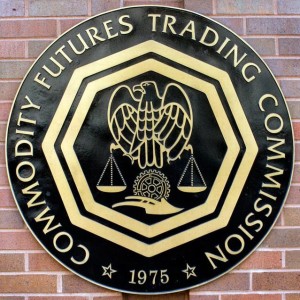 The Commodities Futures Trading Commission (CFTC) busted a forex scheme, which recruited potential traders with false and misleading promises.
The Commodities Futures Trading Commission (CFTC) busted a forex scheme, which recruited potential traders with false and misleading promises.
The CFTC made the announcement against Michael Salerno of Pennsylvania and several companies he controls.
“The Commodity Futures Trading Commission (CFTC) filed a civil enforcement action charging Defendants Michael Salerno of Chadds Ford, Pennsylvania, and his companies Black Diamond Forex LP and BDF Trading LP, both Pennsylvania limited partnerships, and Advanta FX, a Pennsylvania corporation, with fraudulently soliciting members of the public to become foreign currency (forex) proprietary traders and with misappropriating the traders’ funds for purposes other than forex trading.”
According to the CFTC, Salerno enticed potential forex proprietary traders to work at his companies with false and misleading claims.
“The CFTC’s Complaint alleges that beginning in at least January 2017 and continuing through at least March 2018, Salerno and his companies fraudulently solicited individuals to become forex traders by making false statements on online websites such as LinkedIn and Indeed.com and their own websites, in violation of the Commodity Exchange Act. As alleged, the Defendants required prospective traders to pay a ‘risk deposit’ or ‘risk capital deposit’ of varying amounts, usually ranging from $1,200 to $1,900, with a promise that Defendants would match these risk deposits with some multiple of company funds in proprietary trading accounts, and then share a portion of the profits from trading with the traders and to pay bonuses tied to certain performance milestones. Defendants’ job postings and solicitations enticed at least 150 prospective traders to deposit at least $310,000 in risk deposits, the Complaint alleges.
“In soliciting prospective traders, the Complaint alleges that Salerno and his companies falsely represented that Salerno had amassed a comfortable income in the forex market, possessed an overseas bank account holding $9.5 million, and that Salerno had sold off $10 million in real estate in 2015. According to the Complaint, Salerno claimed that he was using these funds to start up his proprietary trading companies, from which Salerno promised to establish live trading accounts for traders at an overseas trading company and to split the profits from those trading accounts 70/30 in favor of the trader. However, Salerno allegedly has not traded successfully in the forex markets for at least five years.”
According to CFTC’s complaint, Salerno made at least five false or misleading claims: (a)
- telling prospective traders that their deposits, termed “risk capital,” would be placed into live forex trading accounts;
- that Salerno would supplement these risk capital deposits with Black Diamond Entity funds in prospective traders’ live trading accounts;
- touting his successful forex trading career when in fact he has not personally traded forex in the last five years;
- failing to disclose Salerno’s felony conviction in 2005 for failure to file proper forms and pay employment taxes in connection with a real estate investment firm;
- failing to disclose Salerno’s Chapter 7 bankruptcy filing and discharge in 2015.
The Commodities Exchange Act, which the CFTC alleges Salerno violated, is broad in scope and covers a wide range of trading activity.
The act was first passed in 1936 and amended several times since, the act, “establishes the statutory framework under which the CFTC operates.” According to CFTC’s website.
In this case, the CFTC alleges, “By engaging in this conduct and the conduct further described herein, Defendants have engaged, are engaging, or are about to engage in conduct in violation of the Commodity Exchange Act,” the CFTC stated in its complaint, “Specifically, by cheating or defrauding prospective traders and by misusing their funds, Defendants have engaged in conduct in violation of Section 4b(a)(2)(A) and (C) of the Act, 7 U.S.C. § 6b(a)(2)(A), (C) (2012), and Commission Regulation (‘Regulation’) 5.2(b)(1) and (3), 17 C.F.R. § 5.2(b)(1), (3) (2017).”
The CFTC filed in Federal Court in the Eastern District of Pennsylvania. The defendants are charged with three counts of fraud.








